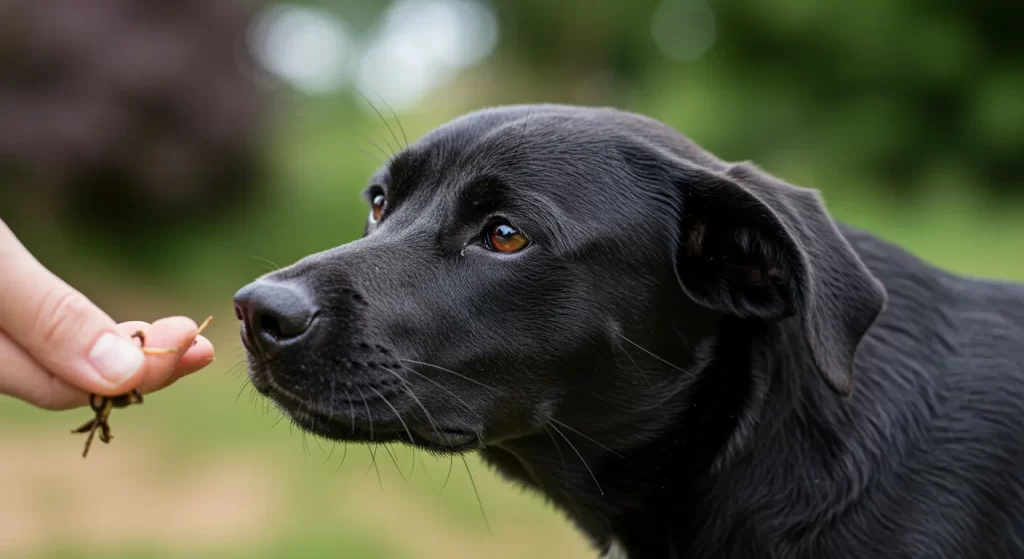Table of Contents
Do Bed Bugs Bite? Dogs are notorious for their ability to infest homes and feed on human blood, but what about our pets? A common question many pet owners have is whether bed bugs bite dogs. While bed bugs primarily target humans, there are scenarios where dogs can become victims of these pests.
In this article, we will explore the manners of bed bugs, how they interact with pets, and what pet proprietors can do to save their dogs from these tiny invaders.
What Are Bed Bugs?
Bed bugs are tiny, reddish-brown insects that thrive in warm environments, feeding on the blood of mammals. They are most active during the night when they come out to feed, often hiding in cracks and crevices during the day. While they primarily target humans, bed bugs are opportunistic arms and will bite any warm-blooded animal if given the chance.
Do Bed Bugs Bite Dogs?

The short reply is yes; bed bugs can bite dogs, though it is not as common as biting humans. Bed bugs are tempted by body heat and carbon dioxide, which dogs also emit. If a dog is sleeping in an area where bed bugs are present, it is possible for the pests to bite the dog in search of a blood meal.
However, bed bugs are not typically drawn to dogs as they are to humans. They prefer areas where human blood is more readily available, especially around sleeping areas where humans spend long hours in bed. This doesn’t mean dogs are entirely safe, though, as infestations can spread to places where pets rest.
Also Read: Navigating SinPCity: Tips and Tricks for Your First Visit
Signs of Bed Bug Bites on Dogs
Do Bed Bugs Bite Dogs? Bites on dogs may appear as small, red, and itchy welts, much like they do on humans. However, due to the dog’s fur, it can be harder to spot these bites.
In some cases, a dog may exhibit signs of discomfort or irritability, and you may notice them scratching or licking more than usual. If a dog has been bitten by bed bugs, the bites can sometimes lead to secondary infections due to excessive scratching.
Unlike flea bites, which tend to cluster around a pet’s lower back or tail area, bed bug bites are typically more random in nature and can be found on any part of the dog’s body.
If you suspect your dog has been ground by bed bugs, it’s important to inspect their resting areas and consult with a veterinarian to rule out other potential causes of irritation.
How to Save Your Dog from Bed Bugs

Deterrence is key when it comes to keeping both your home and your pets safe from bed bugs. Here are some steps pet owners can carry to protect their dogs:
- Inspect Resting Areas Regularly
- Do Bed Bugs Bite Dogs? Check your dog’s bed, blankets, and any areas where your pet frequently rests. Bed bugs are often seen hiding in cracks, seams, and folds, so be thorough when inspecting these areas.
- Maintain a Clean Home
- Regularly vacuum your home, especially around the dog’s sleeping area. Bed bugs can hide in carpeting and furniture, so careful cleaning can help reduce the risk of an infestation. Pay special attention to the edges of the bed, baseboards, and any other places where bed bugs may hide.
- Treat the Home for Bed Bugs
- If you suspect a bed bug infestation, take quick action to treat the home. This may involve using chemical treatments or calling in a pest control professional. It’s important to act quickly, as bed bug infestations can spread rapidly.
- Keep Pets in Bed Bug-Free Zones
- Keep your dog in areas that are less likely to be infested, such as rooms that are less frequently used. If you have a known bed bug issue, try to limit your pet’s exposure to infested areas.
- Check Your Dog’s Coat
- While it’s less likely that bed bugs will latch onto a dog’s fur, it’s still important to check for any unusual bites or signs of infestation. Regular grooming can help ensure your dog is not carrying any unwanted pests.
The Dangers of Bed Bugs for Dogs

While bed bugs do not transmit infections to dogs, they can still cause significant discomfort. The itching and irritation caused by the bites can lead to excessive scratching, which may result in open sores or infections. Furthermore, the existence of bed bugs in the home can cause stress for both pets and owners.
In rare cases, if a dog is highly allergic to bed bug saliva, it may experience more severe reactions. These reactions could include swelling, hives, or difficulty breathing. If your dog shows signs of an allergic reaction, it is crucial to seek quick veterinary care.
Closing Words
Do Bed Bugs Bite Dogs? are not typically a primary concern for dogs, they can indeed bite pets if given the opportunity. Pet proprietors should remain vigilant in monitoring their dog’s environment and look out for signs of bed bug bites.
By maintaining a clean home and addressing any bed bug infestations promptly, you can provide the safety and comfort of both your dog and your family. Constantly consult with a veterinarian if you suspect your pet has been influenced by bed bugs or if you notice unusual symptoms.
Taking the right preventive steps will help keep both your home and your dog free from these unwanted pests, allowing for a peaceful, bed bug-free environment.
FAQs
Can bed bugs bite dogs?
Yes, bed bugs can bite dogs, but they prefer humans. If a dog is in an infested area, they may be bitten, causing irritation and discomfort.
What are the signs of bed bug bites on dogs?
Bed bug bites on dogs appear as small red welts. Dogs may scratch or lick excessively, and bites are often scattered around the body, unlike flea bites.
How can I protect my dog from bed bugs?
Inspect your dog’s resting areas, maintain a clean home, treat for bed bugs, and keep your dog in bed bug-free zones to minimize exposure.


